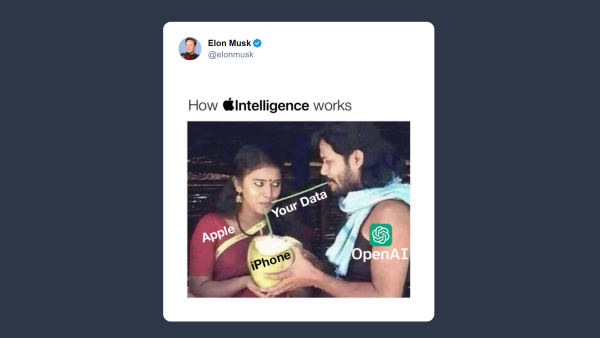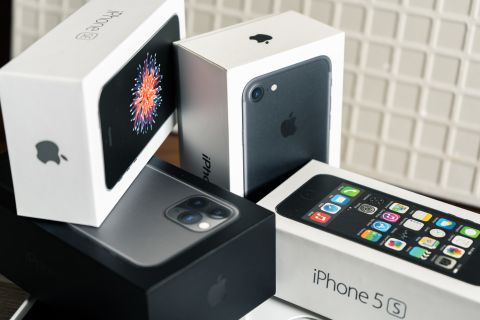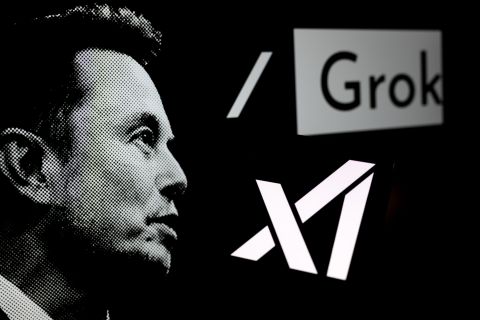ALBAWABA – Apple’s recent WWDC24 showcased the tech giant’s biggest stepping into the generative AI industry, with a new partnership with OpenAI to bring ChatGPT into Siri voice assistant, which apparently angered Elon Musk, who took to X (formerly Twitter) threatening to ban Apple devices from his companies.
Billionaire Elon Musk called the partnership “an unacceptable security violation” and threatened to block all Apple Inc. gadgets from entering his firms if OpenAI's artificial intelligence software was incorporated at the operating system level.
Musk was originally a co-founder in OpenAI before departing shortly after three years according to Reuters, citing concerns over the company’s profitability goals instead of open sourcing of AI. While developing Grok, a rival to ChatGPT, he has expressed worries about the safety consequences of the rapid advancement of generative AI technology.
“Visitors will have to check their Apple devices at the door, where they will be stored in a Faraday cage,” Musk said explaining his paranoia regarding the integration.
“It’s patently absurd that Apple isn’t smart enough to make their own AI, yet is somehow capable of ensuring that OpenAI will protect your security & privacy!” adding that “Apple has no clue what’s actually going on once they hand your data over to OpenAI. They’re selling you down the river.”
Apple asserted to have designed AI with privacy at its foundation and is planning to enable those capabilities with a mix of cloud computing and on-device processing, saying “privacy protections are built in when accessing ChatGPT within Siri,” and that “requests are not stored by OpenAI, and users’ IP addresses are obscured.”









